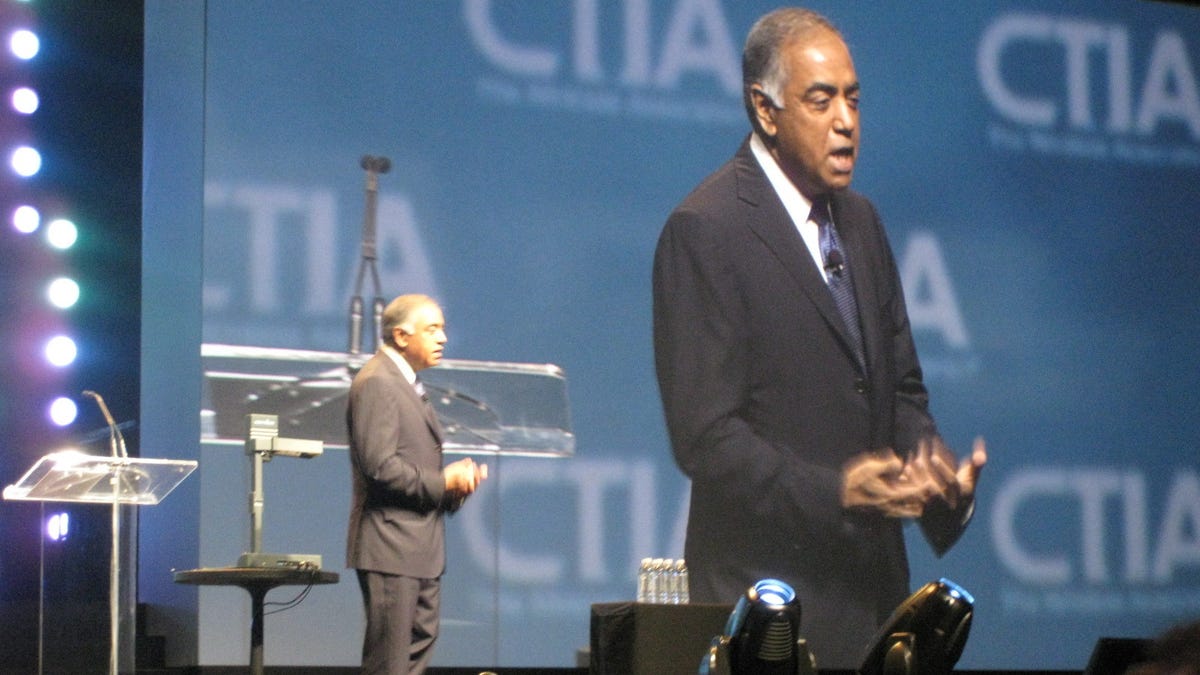LightSquared scores 4G deal with Best Buy
The 4G wholesale provider, which is building an LTE broadband network, gets a big win to drive the Best Buy Connect wireless service

ORLANDO, Fla.--LightSquared, a company that is building a nationwide 4G wireless network, said Wednesday that it has signed a deal with Best Buy to offer 4G wireless service.
The announcement follows a roaming agreement LightSquared announced Monday with wireless carrier Leap Wireless.
LightSquared is building its new wireless network using spectrum that had been designated for satellite communications. The company received a waiver from the Federal Communications Commission in January to use the spectrum to build its LTE-based network. And it plans to offer the service commercially by the end of the year. The service will offer both a satellite and a land-based LTE (Long-Term Evolution) network.
The company plans to run its network as a wholesale business, which means it will not sell services directly to consumers. Instead, LightSquared's potential customers will be cable operators looking to offer wireless service, small wireless operators looking to extend their data footprint, and retailers and device makers looking to integrate wireless data services into their own product offerings.
During a keynote address here at the CTIA 2011 trade show, LightSquared CEO Sanjiv Ahuja said this business model gives LightSquared an edge over other wireless broadband providers because the company will not have to spend money on marketing and consumer support. He also said that LightSquared could be a game changer in the wireless industry, helping smaller carriers and other players offer an alternative to current consumer focused wireless service providers.
As part of the conditions of the waiver, the FCC is requiring that LightSquared build a network that covers 100 million people by 2012 and 260 million people by 2015. Ahuja said the company should meet or even exceed those goals.
The company has said previously that it's been negotiating deals with at least 15 potential customers. Best Buy is the biggest customer so far to sign up with LightSquared. The retailer will use LightSquared's service to deliver 4G wireless data service to consumers through its Best Buy Connect wireless service. Currently, Best Buy uses Sprint Nextel's 3G wireless network and Clearwire's 4G WiMax service. Ahuja said trials will begin in the first quarter of next year.
LightSquared's business model, if effective, could make the wireless market more competitive, even as the industry is facing consolidation. AT&T's announcement earlier this week to acquire T-Mobile USA for $39 billion is the latest example of such consolidation. And it has raised eyebrows of consumer advocates, who fear that consumers will have fewer choices in the market.
But Ahuja said during his speech that LightSquared will offer smaller players a chance to compete with the bigger carriers because its network will be nationwide. This is exactly why Leap Wireless has signed on with LightSquared. The wireless operator is the seventh largest carrier in the U.S. It operates in 35 states nationwide, but only has 5 million customers. It's looking to become more of a national player, but does not have the footprint to compete aggressively with larger nationwide carriers.
But LightSquared still faces challenges that could derail its big ambitions. First of all, building such a nationwide network is expensive. Clearwire, which had funding from Sprint, Comcast, Time Warner, Google and Intel, is struggling to come up with the cash to finish building its nationwide WiMax network.
Ahuja tried to allay funding fears by saying during his speech that LightSquared is well capitalized. The company has secured $14 billion in private funding over the next eight years to build its network.
Another potential problem is that GPS providers say the LightSquared network will likely interfere with their services, an issue that the FCC will have to look into as the company prepares to build its network.

